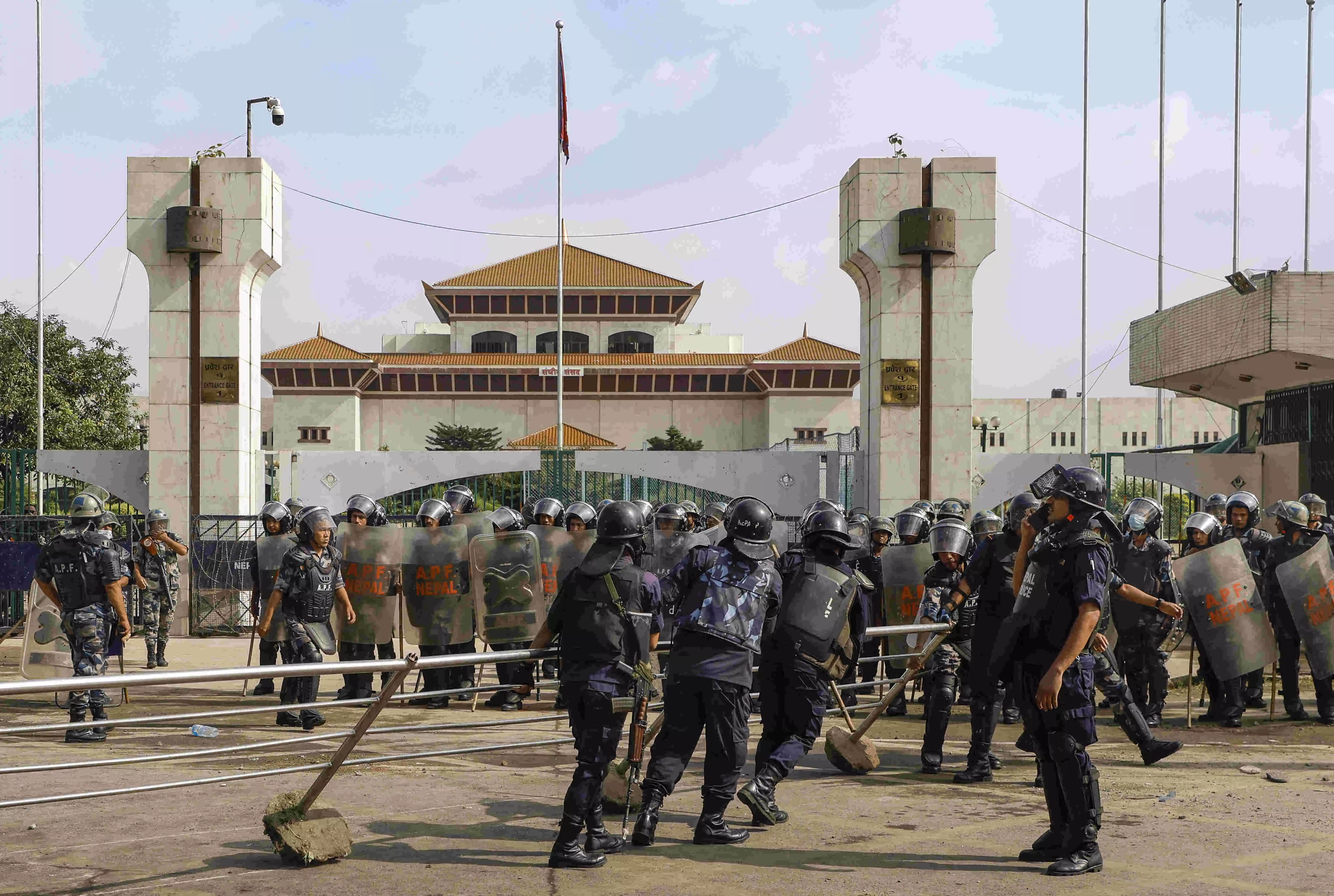Nepal Army imposes nationwide restrictive orders, curfew to curb possible violence

Kathmandu: The Nepal Army on Wednesday imposed nationwide restrictive orders followed by a curfew to quell possible violence under the guise of protest, a day after deadly anti-government demonstrations forced Prime Minister K P Sharma Oli’s resignation, leaving key buildings in flames and the nation on edge. Nepal’s capital, Kathmandu, and other major cities wore a deserted look as army troops fanned out across the country. The restrictive orders are in effect throughout the country from morning to 5 pm, and then a curfew will be in place until 6 am on Thursday, the army said in a statement. The measures were necessitated to curb possible incidents of looting, arson, and other destructive activities "under the guise of agitation", it said. The army, which took control of nationwide security operations at 10 pm on Tuesday, warned that any form of demonstrations, vandalism, arson, or attacks on individuals and property during the restrictive period would be treated as criminal acts and dealt with accordingly. "There are also possible threats of rape and violent attacks against individuals," the statement said. "Keeping in view the security situation of the country, restrictive orders and a curfew have been enforced," it said.
The statement clarified that vehicles and personnel engaged in essential services, including ambulances, fire engines, health workers, and security forces, would be permitted to operate during the restrictive orders and curfew. In another statement, the army expressed concern over the actions of certain groups, which are "taking undue advantage of the difficult situation" and causing “severe damage to ordinary citizens and public property.” "We have deployed our troops to prevent any untoward incidents, including looting and vandalism,” said an officer from the Nepal Army headquarters. Authorities have also issued orders for residents to remain indoors unless "absolutely necessary", in a bid to prevent further unrest, he said. Since early morning, the normally bustling streets of Kathmandu wore a deserted look. Only a few residents ventured out, primarily to stock up on daily essentials. Roads were heavily patrolled by security personnel, and fire trucks were deployed to douse blazes in government and private buildings torched by agitators on Tuesday. The army also urged people to return guns, weapons and bullets looted or found during the student-led agitation to the nearest police post or security personnel. "As there are chances of such weapons being misused, please inform the authorities and return them to the security agencies at the earliest,” the military said in another statement.
It warned that legal action would be taken against anyone found possessing such arms or ammunition without returning them. The army also appealed to citizens "not to wear army uniforms in this sensitive period, as it is illegal to do so". Meanwhile, security personnel arrested 27 people involved in looting, arson and vandalism from different parts of Kathmandu, officials said. During the operations, Rs 3.37 lakh in cash, along with 31 weapons, magazines and bullets, were recovered from individuals in Chabahil, Bauddha and Gaushala areas of Kathmandu. The army appealed to the public to cooperate with security agencies in restoring peace and maintaining law and order. Prime Minister Oli quit on Tuesday shortly after hundreds of agitators entered his office demanding his resignation for the death of at least 19 people in police action during Monday's protests over corruption and a social media ban. The ban on social media was lifted Monday night. However, the demonstrations continued even after his resignation. Protesters set fire to the Parliament, the President's Office, the PM's residence, government buildings, political parties' offices and homes of senior leaders.



